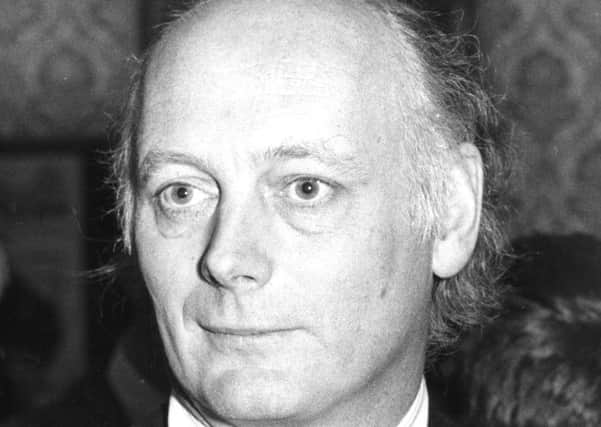Obituary: Baron Montagu of Beaulieu, heritage campaigner and museum founder


Lord Montagu of Beaulieu was a colourful character with a passion for vintage cars and preserving the nation’s heritage. He founded the National Motor Museum on his estate in Hampshire and opened his stately home, Beaulieu, to the public in 1952. Another pioneering event was the Beaulieu Jazz Festival in 1956, which was the first of its kind and did much to popularise modern and traditional jazz. Montagu’s enthusiasm for cars made him a keen supporter of the London to Brighton rally – in which he regularly competed.
Lord Montagu was a descendant of the fifth Duke of Buccleuch and had connections with Dukes of Queensbury. In the 18th century the family adopted the surname of Montagu Douglas Scott and in 1885 the fifth Duke of Buccleuch was created Baron Montagu of Beaulieu; he had been MP for Selkirk.
Advertisement
Hide AdAdvertisement
Hide AdEdward John Barrington Douglas-Scott-Montagu, third Baron Montagu of Beaulieu, was educated in Canada and at Eton. He read history at New College, Oxford but left in his second year after an altercation between the Bullingdon Club and the Oxford University Dramatic Society: Montagu’s room had been trashed and he felt obliged to leave.
He did his national service in Palestine with the Grenadier Guards.
Montagu then joined an advertising agency and promoted the inaugural issues of the famous boys weekly magazine, The Eagle. Montagu, with typical exuberance, hired a fleet of Daimlers with model golden eagles mounted on the roof as a publicity gimmick.
In 1951 he inherited the family home in Beaulieu in the New Forest, when his father was killed in an accident. It was in a sad financial state and he was advised to sell or demolish it. “Neither was entirely sensible nor rational,” he said. “It was unthinkable.”
In 1954 Montagu figured prominently in the press when he and two friends (Peter Wildeblood and Michael Pitts-Rivers) thrust homosexuality onto the front pages. It was alleged they had carried out homosexual acts with two members of the RAF.
The press ran the story and the trial with banner headlines. Montagu commented: “They peddled tragedy, sensation and heartbreak.” He denied the charges and the officials used the same law that had been used in 1895 to prosecute Oscar Wilde.
The original charges were thrown out, but shortly after his acquittal Montagu was rearrested on a different charge and sentenced to a year in prison. He emerged from the court to cheers, while the two airmen were booed. The public outcry against the verdict led to the Wolfenden Commission being set up to look into legalising homosexuality and the law was changed in 1967.
It was Montagu’s sheer determination to save Beaulieu that helped him adjust after prison. His entrepreneurial skills in creating the Motor Museum and then opening the house to the public proved ingenious and innovative. By the 1980s the museum was attracting 500,000 visitors a year – second only to the Tower of London.
Advertisement
Hide AdAdvertisement
Hide AdMontagu’s vision really created the historic homes business and many cash-striven families followed suit, thus saving important houses from demolition. He played a major role in the development of historic houses: way ahead of his time, he argued in favour of gift shops, restaurants and events in gardens. In 1983, he became chairman of English Heritage and was active in preserving historical architecture.
The Beaulieu Jazz Festival, which he founded in 1956, was the first such summer musical jamboree to be held in a historic house. It attracted many of the greats of British jazz such as Johnny Dankworth, Cleo Laine, Humphrey Lyttelton and George Melly. A slight fracas – the “Battle of Beaulieu” – was fought on the palace lawns between followers of modern and trad jazz and Montagu terminated the event.
When Margaret Thatcher abolished the Greater London Council in 1986, she transferred the management of the capital’s historic buildings to English Heritage, saying: “Edward Montagu will know what to do with them.”
He built up a healthy reputation for his contributions in the House of Lords – he invariably confined his speeches to matters on tourism and transport. Significantly, after the Blair administration changed the rules, he was one of the few hereditary peers chosen to retain his seat.
Montagu never spoke about the trial and refused to accept that he had taken on the establishment and paved the way for a more liberal attitude to gay politics. In 2000 he published his candid autobiography, Wheels Within Wheels, in which he admitted he was bisexual and described the torment of the 1954 trial.
Lord Montagu’s 1959 marriage to Belinda Crossley was dissolved in 1974. He married Fiona Herbert that year.
She survives him, as do two children from his first marriage and one from his second. The elder son Ralph succeeds to the barony.